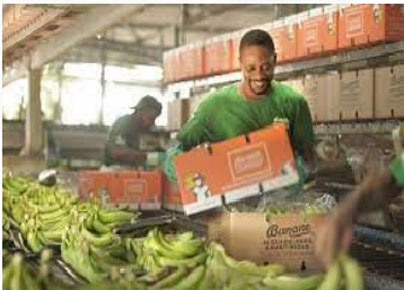Concerning Decline in FWI Banana Production
2024-03-01

Over the past decade, banana production in Guadeloupe and Martinique has experienced a significant 30% decrease. This decline is attributed to several factors, including the black Sigatoka disease, climate change, escalating costs, and competition from low-cost producers.
Bananas, France's second most favoured fruit, are increasingly imported rather than sourced locally from Guadeloupe and Martinique. The market share of these regions has dropped from 35-40% in 2014 to a mere 21% today, as stated by Jean-Claude Maraud Des Grottes, an administrator of the Union of Banana Producers of Martinique (Banamart).
The producers from the French West Indies express their concerns openly. They attribute the 30% decrease in banana production over ten years (185,000 tonnes) to climate change effects such as tropical storms, droughts, heavy rains, and cooler temperatures.
However, the primary culprit is the black Sigatoka, a fungus that severely affects the yields of the 8,130 hectares of local banana plantations.
Since 2014, Guadeloupe and Martinique have been the only regions in the world combating this devastating disease without resorting to aerial treatments, which are banned in Europe. The number of authorized active ingredients to fight this disease is dwindling, with only three solutions remaining, compared to nine in 2019.
The industry has transitioned to agroecological practices, controlling the grass cover between rows of banana trees using mechanical tools without chemical intervention. Phytosanitary products have been reduced by 83% since 2008, and the industry no longer uses insecticides, herbicides, or nematicides. Despite the high cost of this transition (€1,600 per tonne compared to €500 to €600 in Africa or South America), the industry is catching up thanks to the "French banana" and its tricolour ribbon, which is 35% more expensive.
To compete with "low-cost" countries, the sector advocates for increased European aid for overseas agriculture, which has remained unchanged since 2007 (€400/t), and the possibility of using drones instead of manual sprayers to treat banana trees against the fungus. An amendment to the following agricultural orientation law could be presented to this effect by the majority.
Furthermore, West Indies producers call for the adoption of new genomic techniques (NGTs). A variety resistant to Black Sigatoka is awaiting approval from Brussels and could be marketed as early as 2030.
The goal is to restore production to 250,000 tons, providing a promising future for young people in the industry, where the average age of producers is currently 60 years. The banana market in France represents 740,000 tonnes, of which 21 to 22% comes from Guadeloupe and Martinique.









